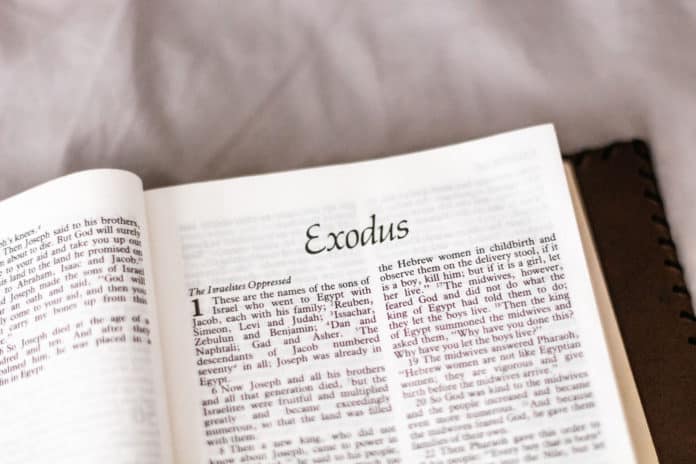
As Christians gather for Good Friday and Easter, Jews kick off the world’s oldest tradition Friday night, the Passover Seder.
The overall holiday lasts for eight days and commemorates the Israelites earning their freedom from the Egyptians, following centuries of brutal slavery.
More than 3,000 years later, Jewish families keep the liberation story alive by gathering at the Seder table where children ask the four questions and parents attempt to answer.
But Jews are not the only group that find the narrative powerful and worthwhile.
Many U.S. religious scholars believe that few, if any, biblical stories are more important in our history than the Exodus, since it’s a tale Americans also tell to remember their historical achievements.
After the Continental Congress approved the final text of the Declaration of Independence in 1776, it sought an official national emblem.
The famous trio of John Adams, Benjamin Franklin, and Thomas Jefferson were chosen “to bring in a device for a seal for the United States of America.” Two of them proposed images taken directly from Passover.
Franklin suggested a seal showing “Moses standing on the Shore, and extending his Hand over the Sea, thereby causing the same to overwhelm Pharaoh who is sitting in an open Chariot, a Crown on his Head and a Sword in his Hand.”
Franklin’s seal essentially underscored God’s involvement in the liberation of an oppressed people, much like the new Declaration of Independence expressed “a firm reliance on the protection of divine Providence.”
The supposedly secular Jefferson apparently was inspired by an earlier passage in Exodus.
His idea was a seal showing “the Children of Israel in the Wilderness, led by a Cloud by day, and a Pillar of Fire by night.”
In the many years since, Americans caught up in substantive causes — including slavery — have invoked the Exodus account of the Jews’ redemption from Egypt.
The story is foremost a Jewish narrative, of course. But it has over time also become a Christian and American narrative. A Jew himself, Jesus had a Passover meal with his followers the day before his crucifixion. That last supper was actually a Seder.
And the Passover story remains important, as those who continue to seek its destruction surround our chief ally.
Historically, when the weeks surrounding Passover overlap with Ramadan, they are often a dangerous time for the Jews. The current terror wave in Israel confirms this.
At the time of this writing, four Islamist terrorists — fueled by the Palestinian Authority and Fatah — have murdered a total 14 Jews, with other attacks thwarted.
Israeli special forces in Jerusalem. ✡️✝️☪️
They are there to ensure the safety of Jews, Christians, and Muslims alike as Passover and Easter are around the corner.
We do not tolerate radicals. pic.twitter.com/SHjp5kj3sD
— Hananya Naftali (@HananyaNaftali) April 13, 2022
Civilizations have for nearly 6,000 years tried to wipe out the Jewish people. Ancient civilizations failed, as did Arab nations, and today’s anti-Semitic entities and rogue individuals will too.
“As a people, Jews have serious challenges, but we persevere,” a Rabbi in Florida told Alpha News this week. “We are strengthened by the hatred of others.”
Yet Judaism and the Jewish people press on.
A.J. Kaufman
A.J. Kaufman is an Alpha News columnist. His work has appeared in the Baltimore Sun, Florida Sun-Sentinel, Indianapolis Star, Israel National News, Orange County Register, St. Cloud Times, Star-Tribune, and across AIM Media Midwest and the Internet. Kaufman previously worked as a school teacher and military historian.










